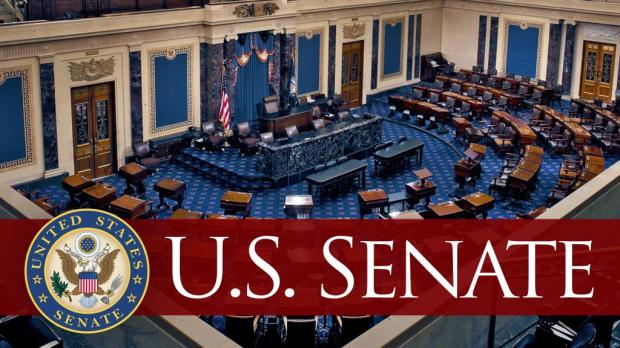Senate passes coronavirus relief bill, which Trump is expected to sign

The United States’ Senate passed a nearly $500 billion interim coronavirus bill by voice vote Tuesday that includes additional money for the small-business loan program, as well as for hospitals and testing, making way for the legislation to become law as soon as the end of the week.
House Speaker Nancy Pelosi, D-Calif., and Senate Minority Leader Chuck Schumer, D-N.Y., said in a joint statement that they were “proud” to have secured an interim aid bill that went beyond the initial Republican proposal.
“Democrats flipped this emergency package from an insufficient Republican plan that left behind hospitals and health and frontline workers and did nothing to aid the survival of the most vulnerable small businesses on Main Street,” they said.
Senate Majority Leader Mitch McConnell, R-Ky., said in a statement announcing the deal that in more than a week of negotiations, “while our Democratic colleagues delayed the urgent [Paycheck Protection Program] funds, additional federal help for hospitals and health care providers became urgent as well.”
“I am just sorry that it took my colleagues in Democratic leadership 12 days to accept the inevitable, and that they shut down emergency support for Main Street in a search for partisan ‘leverage’ that never materialized,” McConnell added.
House Majority Leader Steny Hoyer, D-Md., advised members to return to Washington for a 10 a.m. vote on Thursday, meaning the legislation could be on President Donald Trump’s desk by the end of the week.
Trump suggested Tuesday that if the bill is passed, he will sign it into law.
“I urge the Senate and House to pass the Paycheck Protection Program and Health Care Enhancement Act with additional funding for PPP, Hospitals, and Testing,” he tweeted Tuesday afternoon.
Schumer expressed optimism about getting a deal in an interview Tuesday morning on CNN, saying, “There is still a few more I’s to dot and T’s to cross, but we have a deal, and I believe we’ll pass it today.”
The minority leader said he and Pelosi had been on the phone “well past midnight” with White House chief of staff Mark Meadows and Treasury Secretary Steven Mnuchin and “came to an agreement on just about every issue.”
The interim proposal includes more than $320 billion for the Pyacheck Protection Program, which was created by the coronavirus stimulus package passed late last month and provides forgivable loans to small businesses that keep their employees on payroll. About $60 billion of the additional funding would be set aside for “underbanked” business, a priority for Democrats, who were concerned that businesses in rural and minority areas were having trouble accessing the loans.
The measure would also provide $60 billion in loans and grants for the Small Business Administration’s disaster relief fund, $75 billion for hospitals and $25 billion for coronavirus testing. But the legislation does not include the additional funding for states that Democrats have sought.
Trump tweeted that more state funding could be considered in future coronavirus legislation.
Pelosi and Schumer said in their joint statement that they were “disappointed” that the president did not agree to state funding but “pleased that the president has committed to addressing this critical priority” in the next major aid package.
The Senate reached a standoff earlier in the month over a Republican proposal that would have provided just $250 billion more in small-business coronavirus relief funds after it became clear that the loan program would run out of money. The parties had been in talks since then, with Democrats pushing to expand the scope of the bill to include more coronavirus money beyond just the Paycheck Protection Program and Republicans insisting on keeping the bill narrowly focused.
Democrats and Republicans in the House have also been battling behind the scenes over a plan to allow votes by proxy amid the pandemic. The House will not be able to pass the interim legislation unanimously, meaning lawmakers need to return to Washington to do so.
In a call with reporters Tuesday, Hoyer said that members were not being forced to leave their districts and that he was aware that the coronavirus would keep some lawmakers at home, but he said he expected a majority to make it back to the Capitol to pass the legislation in a roll-call vote.
Leaders from both parties have indicated that they will look to pass another large coronavirus aid package like last month’s stimulus once the interim bill becomes law.
“As soon as it has passed in the House, we will advance CARES 2, which must be transformative and far-reaching,” Pelosi and Schumer said Tuesday.








